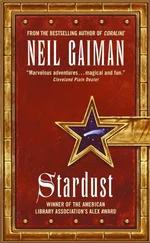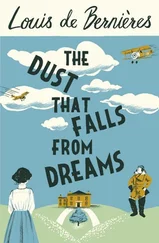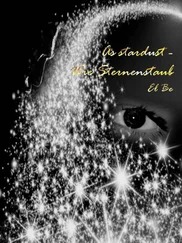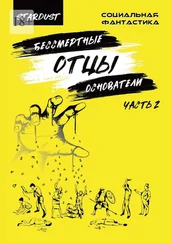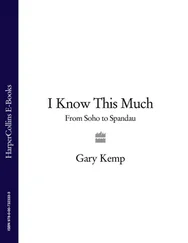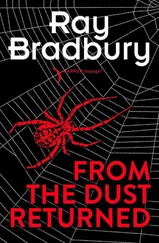Rehearsals started in earnest just before the school summer holidays. The show was to open with ‘The Kids’ belting out the Anthony Newley number ‘Once in A Lifetime’ and as we launched into the final chorus a beaming Lionel would make his entrance through our carefully choreographed ranks, wiry arms flung wide, to rapturous applause. Then it was onto a Fred and Ginger number, something from Cats , a routine from Bugsy Malone : in short, an evening of back-to-back crowd-pleasers. Or, as the show’s programme described it: ‘a rollicking, rumbustious night, Gay Nineties style’. (I should probably point out that ‘Gay Nineties’ is a nostalgic term that refers to America in the 1890s, a period known for its decadence, rather than anything to do with Lionel’s passion for tap-dancing and improvisation.)
There were other acts too, including a pair of incredibly beautiful Italian acrobats called Angelo and Erica. Every night I would watch mesmerised from the wings as they ran through their routine, with the lovely blonde Erica balancing on the Adonis-bodied Angelo’s upstretched hand, always thinking that this would be the night when he dropped her – although he never did. At the time I assumed they were married, but looking back, it’s now obvious to me that no straight man has eyebrows that perfectly groomed …
It was during rehearsals for ‘Once in a Lifetime’ that a chink started to appear in my otherwise armour-like confidence. One of the song and dance numbers we were doing was ‘Matchstick Men’, in which we were dressed in caps and braces like the little stick figures from the famous L. S. Lowry paintings. For some reason, I just couldn’t get the hang of this one dance move. It wasn’t even particularly difficult. Thumbs hooked in braces, I had to kick up my left heel behind me to touch the right heel of the girl next to me, but I always ended up kicking the wrong foot, which meant I ended up standing out like a sore thumb amongst the ranks of perfectly drilled little stick figures.
On the day of the final dress rehearsal we were running through the number with the choreographer on stage, while Lionel and the producers sat watching in the auditorium. It came to the chorus -‘And he painted matchstick men and matchstick cats and dogs … – and, regular as clockwork, I kicked up to the wrong side. Suddenly there was a yelp from the auditorium, the orchestra stopped playing and then Lionel was bounding up on stage, this incredibly wiry streak of energy. I remember being very much in awe of him because he was on television every week. I also remember him having the most terrible breath. I have no idea whether it was garlic or cigarettes, but these are the sorts of things that stick with you when you’re a kid. (I should say that I’ve met Lionel a few times since and his breath has been absolutely fine.)
All the kids waited nervously as he strode along our ranks before coming to a halt in front of me. He was almost always smiling, which made it all the more terrifying now that he had a face like thunder. He pointed straight at me.
‘This boy’ – he said to the choreographer – ‘is getting the step wrong every time. You’ll have to move him to the back of the chorus.’
‘Of course, Lionel.’ The choreographer turned to me, furious that this little brat was making him look bad in front of the talent. ‘You, Gary – swap with Mark.’
And with that I was shuffled to the back, my cheeks burning with shame at my public humiliation.
‘Right, everyone’ – Lionel clapped his hands theatrically, then swept off the stage – ‘From the top. A five, six, seven, eight …!’
As the music started again I went through the motions, but my mind was elsewhere. A thought had suddenly wormed its way into my head. There are people here who are better than me at this. And that thought terrified me.
The Once in a Lifetime tour was to prove a bittersweet time for me. On one hand I was appearing in a major production and lapping up the nightly applause and attention. We were treated like celebrities – staying in the best hotels, accompanied by chaperones and even getting asked for autographs at the stage door. (I would always sign mine with a big swirly ‘Gary’; I never put my surname as I found it a bit embarrassing.)
I had a laugh with the other kids and, of course, my little girlfriend Kerry, although it was all very innocent – some kissing, a bit of hand-holding and one night a slightly awkward ‘I’ll show you mine if you show me yours’ session in a deserted dressing room. On the other hand, however, appearing in the show marked the end of my friendship with Gavin Morley, who had become my best – and up until then only – male friend. When he didn’t get a part in Once in a Lifetime with me, Nicola and Kerry, he left Lynn’s stage school and, as he lived in another village ten miles away, we drifted apart.
I needed all the friends I could get, as I had very few of them at school. When I was younger I’d always preferred to play with my sister and cousins, and then stage school became such a huge part of my life that I missed out on all the usual socialising kids do, the playing-out after school and the sleepovers. But it wasn’t just that; I had this strong feeling that I was different from my classmates – special even. After all, I often missed school for some audition or performance, I was occasionally on the telly, I even spoke differently from the other kids after all the ‘Red lorry, yellow lorry’ elocution exercises at Lynn Selby’s softened my accent. I hate to admit it, but I almost felt I was better than them – and, of course, that didn’t go unnoticed by my peers.
The bullying started harmlessly enough.
‘Oi, Gary, can I have your autograph?’ some kid would shout after I’d popped up in another advert or the local papers. Being a mouthy little sod at the time, I would never just ignore it.
‘Yeah, course you can!’ I’d shoot back, cocky as ever. ‘Bet you’re jealous, aren’t you?’
When I was ten my teacher contacted my parents to tell them I was getting a bit of hassle from the other kids, so my dad started taking me to karate lessons to help me take care of myself if any trouble kicked off. I loved the karate; it was just like another dance class for me, plus it was really lovely spending time with Dad. As I was to painfully discover, however, the whole self-defence aspect of karate – which had, of course, been the aim of the exercise – was pretty much lost on me.
I was on the school playing fields one day with Joanne, one of the few friends I had at the time. Joanne was a really lovely girl: funny, sweet natured, always smiling. She was also a quadriplegic, with neither arms nor legs, and confined to a wheelchair. It was one of the things that drew me to her, I suppose: in my eyes we were both different from everyone else, both outsiders. So on this particular day I was pushing Joanne and we were chatting when a group of three lads from my class came over and started making the usual cracks about me being in the local paper.
‘You think you’re so much better than everyone else, Cockerill … Nancy boy … Pansy …’
I gave them a mouthful back and kept on walking, but today it didn’t stop at verbal insults. Suddenly I felt an almighty shove and was knocked to the ground. Before I could move – or remember any of my months of karate training – I was roughly pulled up and held between two of the lads. I was vaguely aware of Joanne screaming, ‘No, leave him alone!’ Then an agonising explosion of white-hot pain as this kid kicked me in the balls with all his strength.
I lay on the floor, sobbing, winded, dizzily nauseous. I was still in agony when I got home that afternoon, but I didn’t tell my parents what had happened. Instead I pretended I’d fallen off my Raleigh racer. I suppose I was embarrassed what Dad would say if he found out I hadn’t stood up for myself.
Читать дальше

